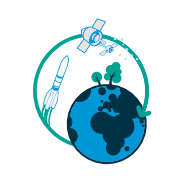Speaker
Description
As the number of satellites and space debris continues to grow, this project will support the development of an advanced automated AI-powered platform to monitor, operate, and protect Canadian air space and space assets. The gateway to space domain awareness (SDA) is understanding orbital mechanics and being able to predict and track the motion of resident space objects (RSOs). Prediction and tracking are challenging, particularly given the multitude of objects in orbit, at different velocities, and in different orbits. Space watch crews currently monitor well over a dozen separate information feeds, which requires constant vigilance, running checklists, interpreting, analyzing, validating, and transcribing and retransmitting information. Additionally, operational analysis staff must conduct higher-level space event risk analysis, requiring a cross-correlation of the information that watch crews monitor and retransmit. Their analysis supports operational decisions related to the protection and operation of space assets and capabilities. This current classical approach for monitoring and operating satellites and other space assets is no longer practical due to the increasing number of orbital debris threats, which are also potential barriers to future spaceflight. Novel methods are actively being sought given the limitations of earth-based radar systems as an application taking into account space conditions and the plethora of angles of inclination to increase the understanding of objects in LEO and Geostationary Equatorial Orbit (GEO).
The project aims to demonstrate the impact of a selected number of emerging AI technologies on the sustainability of the space sector. This includes: Digital Operations Assistants, Space Object Classification and Characterisation, Space Object Behavioural Analysis, Collision Avoidance Automation, Autonomous Close Proximity Operations. This interactive presentation provides an update on the project, continuing progress, and activities underway in partnership with the University of Strathclyde, University of Arizona, Massachusetts Institute of Technology, the University of Waterloo, followed by an interactive session. The ultimate goal of the AI for Space Safety and Sustainability project is to set up an International Institute on AI for Space Safety and Sustainability that will accelerate the development of AI technologies from concept, at early technology readiness levels, to adoption in the space sector.

